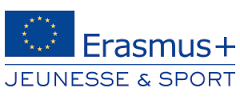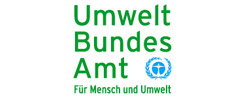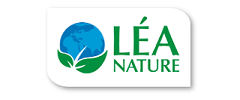Harmful Chemicals in Products you buy? Your Right to know!
5-MINUTE TASK FOR YOUR HEALTH (German version underneath)
13.03.2009 |WECF Press Release
(French version, Dutch version)
Brussels, 13 March 2009 – Recent European Union legislation gives the consumer the right to know whether certain toxic chemicals are being used in everyday products. To celebrate European Consumer Day on Friday, 13 March 2009*, a public interest coalition is promoting an information leaflet for consumers about new rights under REACH, the recent EU chemicals legislation.
(1) The groups involved are concerned about how certain chemicals used in consumer products are affecting human health. The "know your rights" leaflet is the initiative of the Chemicals Health Monitor project (2) of the Health and Environment Alliance (HEAL) and supported by 14 European and national health, environmental, women’ and consumers’ groups. (3)
Entitled “Harmful chemicals in the products you buy? Your right to know”, the leaflet explains how the new 'right to know' works, and how consumers can use it. It includes a sample letter to a manufacturer or retailer to obtain information on whether harmful chemicals are present in the product. It should take consumers not more than five minutes to prepare. The leaflet also gives examples of chemicals of high concern that are typically found in different consumer products. (2)
Why this action? Certain chemicals currently used in the production of consumer products are likely contributors to some chronic health conditions. The REACH legislation introduced an authorisation mechanism that can strictly control the uses of harmful chemicals. However, the process is moving slowly leaving the door open for industry to continue using chemicals in consumer products that are recognised as being harmful to health. (4)
"The evidence that some chemicals on the market can contribute to chronic conditions, such as allergies, some types of cancer, and reproductive problems, is growing daily," says Dr Lisette Van Vliet, Toxics Policy Advisor, HEAL. "New rights created by the REACH law mean that when consumers ask, companies must inform them, free of charge, which harmful chemicals are in the product. By asking for this information, consumers show they want manufacturers and retailers to use safer alternatives." * Although activities celebrating Consumer Day in Europe are taking place this year on Friday, 13 March, the official date of European Consumer Day is 15 March. Notes 1. REACH – Registration, Evaluation, and Authorisation of Chemicals http://www.chemicalshealthmonitor.org/spip.php?rubrique75 The "right to know" component of the legislation requires the manufacturer or retailer of a consumer product to provide a response to written questions in relation to chemicals on the official list of "Substances of Very High Concern", otherwise known as the "Candidate list", within a 45-day period. More information: http://www.chemicalshealthmonitor.org/spip.php?article262
2. Chemicals Health Monitor project is at www.chemicalshealthmonitor.org. The consumer leaflet is available at the Chemicals Health Monitor website: http://www.chemicalshealthmonitor.org/spip.php?rubrique111 Examples of chemicals of high concern singled out in the leaflet’s "Hidden Dangers" box include phthalates, brominated flame retardants, perfluorinated chemicals, and Bisphenol A. Information on the properties of these chemicals, their health effects and the products in which they can be found is also given.
3. Campaign partner organisations: Health and Environment Alliance (HEAL), Greenpeace; the European Consumers’ Organisation (BEUC); European Environmental Bureau; WECF – Women in Europe for a Common Future (Germany, France, Netherlands), the European Consumer Association in Standardisation (ANEC); BUND/Friends of the Earth, Germany; Verein zur Hilfe Umweltbedingt Erkrankter (Association for the Support of Environmentally Sick People) Germany, Arnika Association, Czech Republic; Consumers Protection Association, Czech Republic; Cancer Prevention & Education Society, UK; Irish Doctors Environmental Association; CAAG – Clean Air Action Group, Hungary; My Right to Know, Bulgaria; CIEL – Center for International Environmental Law, USA/Switzerland
4. The current version of the official list of chemicals that are candidates for the authorisation process numbers only 15, in contrast to two lists of chemicals made by civil society organisations and trade unions which together cover 482 chemicals. The lists were compiled by ChemSec and the European Trade Union Confederation and are based on criteria defined in the REACH legislation. The SIN (Substitute It Now) List 1.0 (267 chemicals) produced by the International Chemical Secretariat (ChemSec) is available at http://www.sinlist.org. The list of 303 chemicals to which workers are exposed and responsible for occupational diseases compiled by the European Trade Union Confederation (ETUC) will be available at http://www.etuc.org/r/830
Contacts:
Dr Lisette Van Vliet, Toxics Policy Advisor,
Health and Environment Alliance,
28 Boulevard Charlemagne, B-1000 Brussels.
Tel. +32 2 234 3645. Mobile: +32 2 484 614 528.
Email: lisette@env-health.org
Genon K. Jensen, Executive Director, Health & Environment Alliance,
Tel: +32 2 234 3641 (direct) Fax: +32 2 234 3649
E-mail: genon@env-health.org Mobile: +32 472 445968
Website: www.env-health.org
Diana Smith, Communications, Health and Environment Alliance,
Tel: +33 1 55 25 25 84, Mobile: +33 6 33 04 2943
E-mail: Diana@gsmith.com.fr
Website: www.env-health.org
The Health and Environment Alliance aims to raise awareness of how environmental protection improves health. It achieves this by creating opportunities for better representation of citizens’ and health experts’ perspectives in the environment and health-related European policy-making. Our membership includes a diverse network of more than 50 citizens’, patients’, women’s, health professionals’ and environmental organisations across Europe and has a strong track record in increasing public and expert engagement in both EU debates and the decision-making process.
Verbraucher haben ein Recht auf Information, um sich für sichere Produkte entscheiden zu können
München, 12. März 2009Anlässlich des Weltverbrauchertages, der jährlich am 15.März begangen wird, veröffentlicht WECF – Women in Europe for a Common Future – gemeinsam mit anderen europäischen Umwelt- und Gesundheitsorganisationen, eine Online-Broschüre, die Verbraucher darüber informiert, wie sie sich vor gesundheitsschädigenden Chemikalien in Alltagsprodukten schützen können. Die im Juni 2008 in Kraft getretene neue EU Chemikaliengesetzgebung REACH verbrieft Verbrauchern ein Recht auf Information über Inhaltsstoffe in Produkten. Die neue Online Broschüre zeigt auf, wie jeder von diesem Recht im Alltag Gebrauch machen kann.
„REACH gibt europäischen Konsumenten „das Recht auf Information” über die schädlichsten Chemikalien in Produkten“, betont Sonja Haider, Chemikalien Expertin von WECF Deutschland. „Dieses Recht sollten Verbraucher im Sinne ihrer Gesundheit unbedingt nutzen. Jedes Unternehmen und jeder Händler muss auf Nachfrage innerhalb von 45 Tagen mitteilen, ob ein Produkt Chemikalien enthält, die auf der REACH- “Kandidatenliste für besonders besorgniserregende Substanzen” sind. Das Unternehmen muss außerdem genügend Informationen bereitstellen, damit das Produkt sicher benutzt werden kann. Die Verbraucher können diese Informationen vor oder nach dem Kauf einfordern. Damit können sie besser informiert Entscheidungen treffen. Indem sie nachfragen, signalisieren Sie dem Händler und dem Hersteller, dass sie sichere Produkte kaufen wollen.“
Sehr notwendig ist das Recht auf Information deshalb, weil Untersuchungen längst gezeigt haben, dass zwischen verschiedenen Krankheiten wie Allergien, Lernschwierigkeiten, Diabetes, bestimmte Krebsarten, Unfruchtbarkeit und der Belastung durch industrielle Chemikalien ein Zusammenhang besteht. Schädliche industrielle Chemikalien sind in vielen Alltags-Artikeln wie in Pflegeprodukten, Reinigungsmitteln, Möbeln, elektronischen Geräten, Kabeln, Textilien, Leuchten, Küchenutensilien, Kleidung, Büromaterialien, Spielzeug, etc. enthalten. Häufig sind sie nicht auf den Etiketten aufgeführt oder nicht als besonders gefährlich erkennbar. Für den Laien ist es bisher geradezu unmöglich, eine wirklich sichere Kaufentscheidung zu treffen.
Neben der Broschüre mit den allgemeinen Erklärungen zum Recht auf Information hat WECF kürzlich einen Ratgeber zum Kauf von sicherem Spielzeug herausgegeben. Der Ratgeber im praktischen Faltformat informiert kurz und bündig über die gefährlichsten Schadstoffe, die in Spielzeug enthalten sein können, über deren Gefahrenpotential und gibt konkrete Tipps, wie Verbraucher in Punkto Spielsachen auf Nummer Sicher gehen können. Den Ratgeber gibt es direkt bei WECF oder zum Herunterladen auf der Website. www.wecf.eu/download/2009/2008_toys_guide_forprint_new.pdf
WECF hofft, durch die Anwendung des Rechts auf Information seitens der Konsumenten Veränderungen in Gang zu bringen, wie Unternehmen ihre Produkte herstellen, welche Inhaltsstoffe sie verwenden, aber auch welche Produkte überhaupt in den Geschäften verkauft werden. „Öffentlicher Druck wirkt oft schneller als Gesetze“, weiß Sonja Haider. „Unternehmen müssen wissen, dass die Menschen sichere Produkte wollen. Käufer können Firmen ermutigen anstatt schädlicher Chemikalien sichere Alternativen zu entwickeln und zu verwenden. Zivilgesellschaftliche Organisationen und Gewerkschaften haben Listen von schädlichen Chemikalien erstellt, basierend auf dem neuen REACH Gesetz. Durch aktives Nachfragen werden Unternehmen aufgefordert, diese Listen zu nutzen, um schädliche Chemikalien zu identifizieren und zu ersetzen.“
Die Online Broschüre und ein Musterbrief für die Nachfrage bei den Firmen steht rechtzeitig zum Weltverbrauchertag ab 14. März auf dieser Website zum Herunterladen zur Verfügung.
Pressekontakt:
Johanna Hausmann, 089 23232938-19, 0173 3570268
johanna.hausmann@wecf.eu
Am 15. März ist Weltverbrauchertag (World Consumer Rights Day, WCRD) Erstmalig gefeiert wurde der Weltverbrauchertag am 15. März 1983. Ursprung ist die Erklärung des ehemaligen US Präsidenten John F. Kennedy, der am 15. März 1962 in einer Rede vor dem amerikanischen Kongress erstmalig vier grundlegende Rechte der Verbraucher formulierte. Als sogenannte "Grundrechte" der Verbraucher bezeichnete:
- das Recht auf Sicherheit und sichere Produkte
- und das Recht auf umfassende Information
- das Recht auf freie Wahl
- das Recht, gehört zu werden
Diese Grundrechte wurden von der Generalversammlung der Vereinten Nationen mit der Verabschiedung der Guidelines for Consumer Protection 1985 (1999 noch einmal aktualisiert, http://www.un.org/esa/sustdev/ sdissues/consumption/english.pdf) erweitert um:
- das Recht zur Befriedigung der Grundbedürfnisse
- das Recht auf Entschädigung
- das Recht auf Verbraucherbildung
- das Recht auf eine intakte Umwelt
Seitdem nutzen die Verbraucherverbände weltweit diesen Tag, kritisch Bilanz zu ziehen und ihre Interessen öffentlich zu machen.
Related News
Human Biomonitoring for Europe
Vienna, 26 September: stakeholder forum
28.09.2018
WECF sends letter to Dutch Secretary of State concerning EU policy on EDCs
In a joint statement WECF and the EDC Free Coalition ask Dutch State Secretary Dijksma to insist on major changes at the Environmental Council meeting to protect our health and environment.
21.06.2016
Commission's EDC criteria proposal: More humans will have to be harmed before action is taken
The European Commission presented today its proposal for criteria to identify endocrine disrupting chemicals (EDCs). WECF and the EDCfree Coalition condemn strongly the decision.
15.06.2016
WECF film "How to protect children from EDCs" now available in Spanish
Pregnant women know it is important to avoid alcohol, nicotine and certain foods. However, what is less well known is that many everyday products contain pollutants that can also be harmful to your baby. WECF's film gives practical advice on how to avoid exposure to EDCs. It now also available in Spanish.
13.06.2016





































